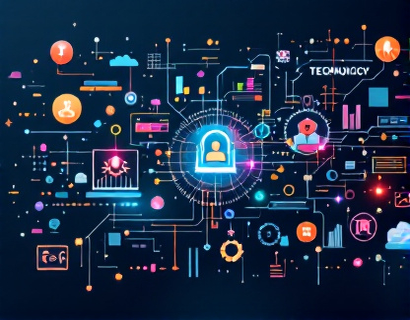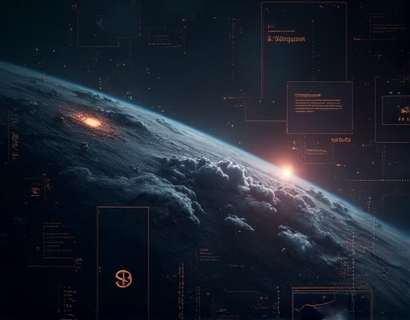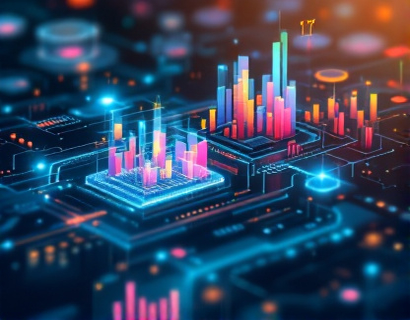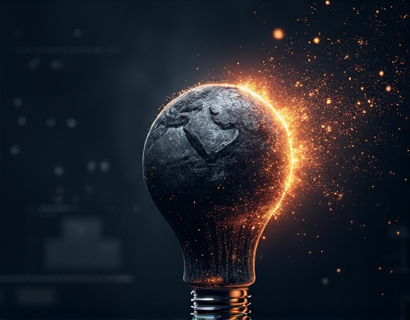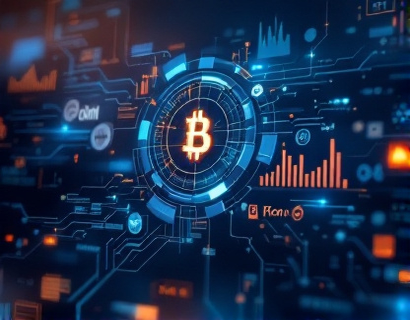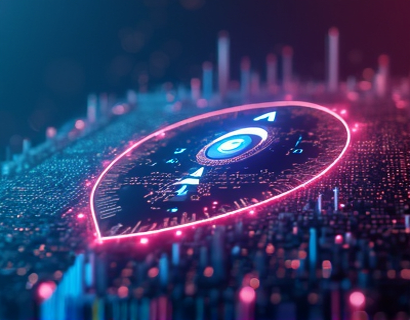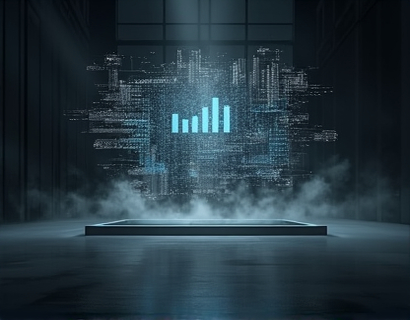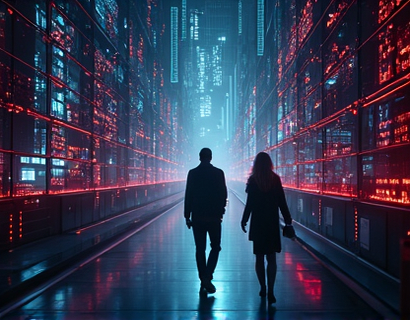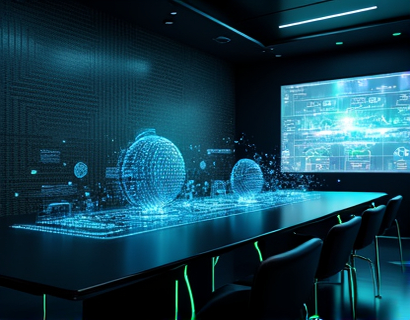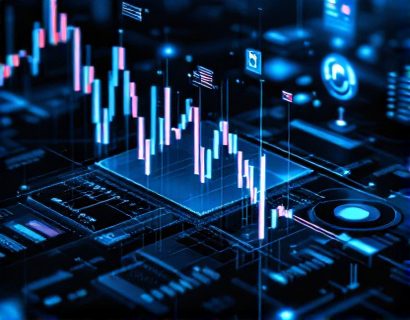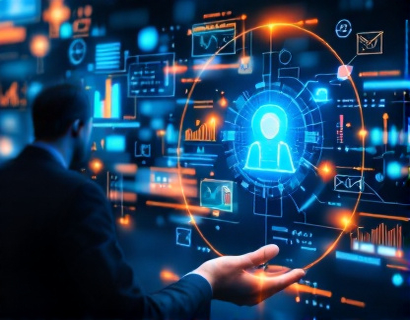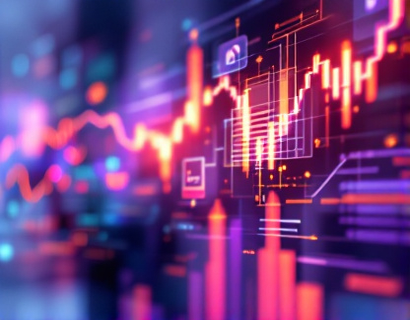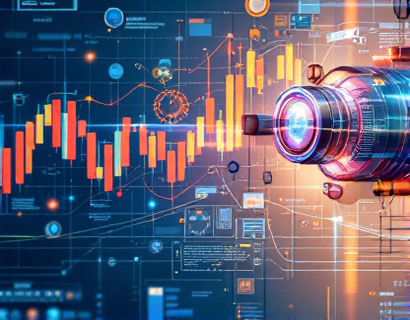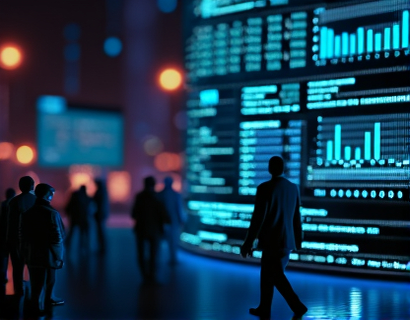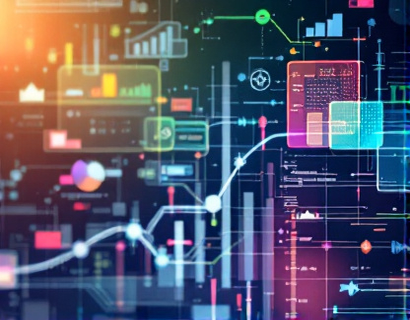Next-Gen Digital Transformation: Harnessing AI and Blockchain for Enhanced App Solutions
The digital landscape is undergoing a profound transformation, driven by the convergent powers of artificial intelligence (AI) and blockchain technology. This fusion is not just a technological advancement but a paradigm shift, redefining how we interact with digital solutions and each other. For tech enthusiasts and early adopters, understanding this synergy is crucial, as it promises to unlock new levels of efficiency, security, and user experience. This article delves into the intricate ways AI and blockchain are being harnessed to create seamless, efficient, and secure digital applications, reshaping the future of connectivity and digital ecosystems.
The integration of AI and blockchain is a natural progression, given the complementary strengths of both technologies. AI excels in processing vast amounts of data, recognizing patterns, and making intelligent decisions, while blockchain provides a decentralized, transparent, and secure framework for transactions and data storage. When combined, these technologies can create applications that are not only smarter and more efficient but also inherently secure and trustworthy.
Enhanced Security through Blockchain
One of the most significant benefits of incorporating blockchain into digital solutions is the enhancement of security. Blockchain's decentralized nature means that data is not stored in a single location, making it extremely difficult for hackers to compromise. Each transaction is recorded in a block, which is then linked to the previous block, forming a chain. This chain is distributed across a network of computers, ensuring that any attempt to alter data would require consensus from the majority of the network, a feat that is practically impossible.
In the context of app solutions, this means that sensitive user data, financial transactions, and other critical information can be stored and processed with a high level of security. For instance, identity verification processes can be streamlined and secured using blockchain, reducing the risk of fraud and identity theft. Smart contracts, self-executing contracts with the terms directly written into code, can automate and enforce agreements without the need for intermediaries, further enhancing security and efficiency.
AI-Driven Intelligence and Automation
AI brings a different set of advantages to the table, primarily in the areas of intelligence and automation. Machine learning algorithms can analyze vast datasets to identify patterns and make predictions, enabling apps to offer personalized experiences and proactive solutions. For example, in healthcare apps, AI can analyze patient data to predict potential health issues and suggest preventive measures, while in customer service, chatbots powered by AI can provide instant and accurate responses to user queries.
Moreover, AI can optimize the performance of blockchain-based applications. By predicting network congestion, optimizing transaction processing, and enhancing consensus mechanisms, AI ensures that blockchain systems operate smoothly and efficiently. This synergy not only improves the user experience but also reduces operational costs and increases the scalability of digital solutions.
Seamless User Experiences
The combination of AI and blockchain is particularly potent in creating seamless user experiences. AI can enhance user interfaces by adapting to individual preferences and behaviors, making applications more intuitive and user-friendly. For instance, recommendation systems powered by AI can suggest content or products based on a user's past interactions, significantly improving engagement and satisfaction.
Blockchain, on the other hand, ensures that these interactions are secure and transparent. Users can have confidence that their data is protected and that transactions are immutable. This trust is crucial for the adoption of new technologies, especially in sectors like finance, supply chain, and healthcare, where data integrity and privacy are paramount.
Decentralized Applications (DApps)
One of the most exciting applications of AI and blockchain is the development of Decentralized Applications, or DApps. Unlike traditional applications that rely on centralized servers, DApps are built on blockchain networks, leveraging the decentralized nature of the technology. This means that DApps are less vulnerable to single points of failure and censorship, and they can operate independently of any central authority.
AI can further enhance DApps by providing intelligent functionalities. For example, AI-driven oracles can bridge the gap between blockchain and external data sources, feeding real-time data into DApps. This allows for more dynamic and responsive applications, such as decentralized finance (DeFi) platforms that offer smart, automated trading strategies based on market data.
Supply Chain Transparency and Efficiency
In the realm of supply chain management, the integration of AI and blockchain can revolutionize how goods are tracked and managed. Blockchain provides a transparent and immutable ledger for recording every step of the supply chain, from production to delivery. This transparency ensures that all parties involved can verify the authenticity and quality of products, reducing the risk of fraud and counterfeiting.
AI can optimize this process by analyzing data from various sources to predict demand, optimize inventory levels, and streamline logistics. For instance, AI algorithms can forecast demand based on historical data and market trends, enabling businesses to adjust their supply chain strategies proactively. Additionally, AI can monitor and analyze the performance of supply chain operations in real-time, identifying bottlenecks and suggesting improvements.
Smart Cities and IoT Integration
The convergence of AI and blockchain is also transforming urban environments through the development of smart cities. IoT devices generate vast amounts of data that can be harnessed to improve city management and services. Blockchain ensures that this data is secure and tamper-proof, while AI can process and analyze the data to optimize various city functions, such as traffic management, energy consumption, and public safety.
For example, AI-powered traffic systems can analyze real-time data from IoT sensors to adjust traffic signals and reduce congestion. Blockchain can secure the data and ensure that it is accessible only to authorized parties, maintaining privacy and security. Similarly, blockchain-based identity verification can streamline access to city services, reducing bureaucracy and enhancing user experience.
Challenges and Considerations
While the potential of AI and blockchain is immense, there are several challenges and considerations that must be addressed. One of the primary challenges is the technical complexity of integrating these technologies. Developers need a deep understanding of both AI algorithms and blockchain mechanics to create robust and efficient applications.
Another consideration is the regulatory landscape. As these technologies are still relatively new, regulations are evolving, and compliance can be a complex issue. Ensuring that AI and blockchain-based applications adhere to data protection laws, financial regulations, and other legal requirements is essential for their successful deployment.
Scalability is also a significant concern. While blockchain technology offers many benefits, it can be slow and resource-intensive, especially for large-scale applications. Innovations in blockchain, such as layer 2 solutions and more efficient consensus mechanisms, are addressing these issues, but ongoing research and development are necessary to fully realize the potential of these technologies.
Future Prospects
The future of digital transformation through AI and blockchain is bright, with numerous possibilities on the horizon. As these technologies continue to mature, we can expect to see more innovative applications across various industries. In the realm of healthcare, AI and blockchain can collaborate to create secure and efficient patient record systems, enabling better care coordination and personalized medicine.
In the financial sector, decentralized finance (DeFi) platforms powered by AI can offer more accessible and transparent financial services, democratizing access to banking and investment opportunities. In the realm of entertainment, blockchain can ensure fair compensation for creators, while AI can enhance content recommendation systems, providing users with more relevant and engaging experiences.
The unified digital ecosystem envisioned by the fusion of AI and blockchain is one where users have control over their data, applications are secure and efficient, and interactions are seamless and trustworthy. As more organizations and developers embrace these technologies, the digital landscape will continue to evolve, offering unprecedented opportunities for innovation and growth.




